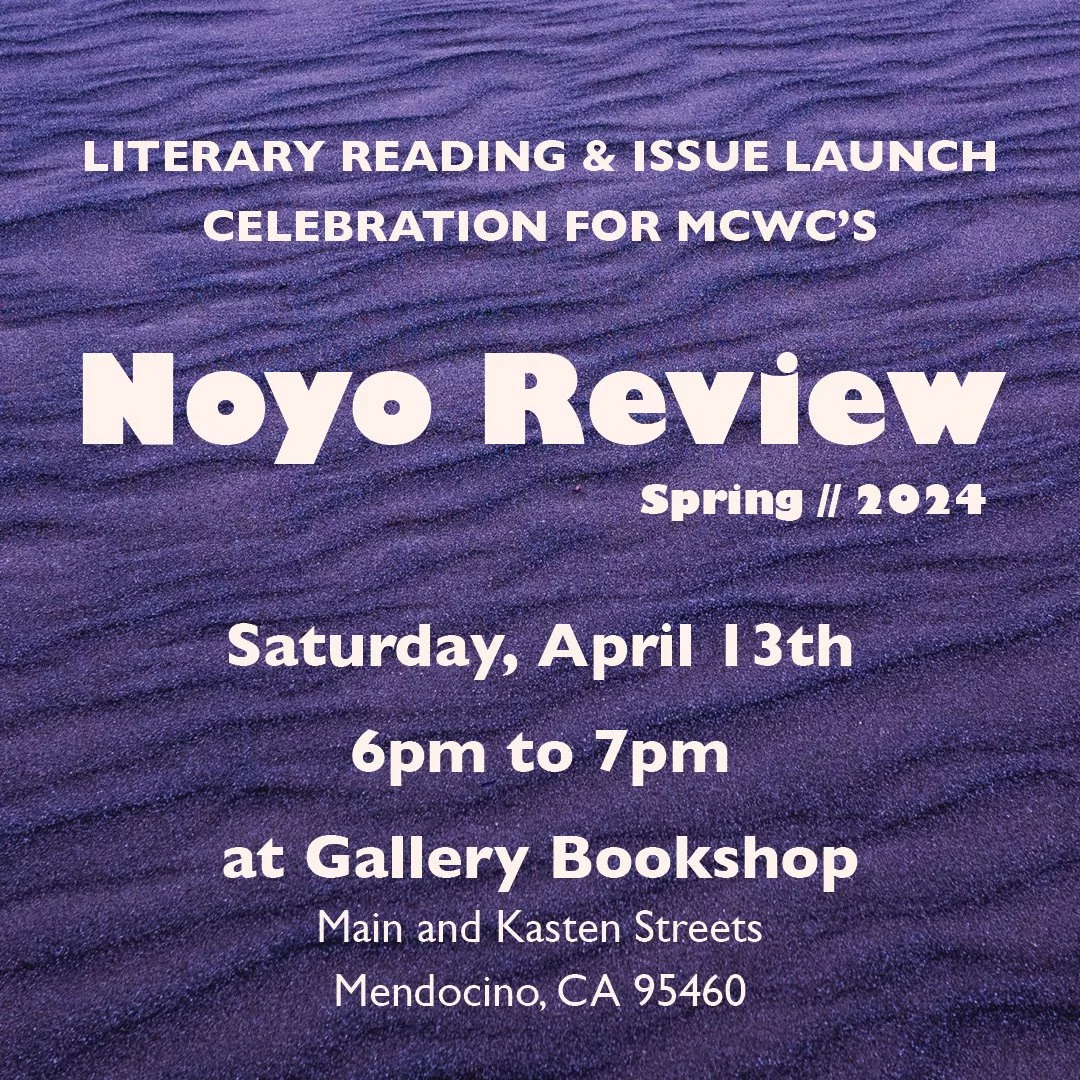We are excited to share that the Spring 2024 issue of Noyo Review is now live! This literary journal is a curated collection of work from our MCWC community published annually online. As a special feature, this issue includes writers from Mendocino County, and we are proud to share their work. We encourage you to check it out and share it widely.
If you're in the Mendocino area, please join us for a live reading and launch celebration this Saturday at 6pm at Gallery Bookshop. Please see details below.
REGISTRATION IS OPEN AND WE HAVE A FEW SPOTS LEFT!
If you haven't gotten your spot yet for our in person conference in August, don't wait too long as three of our workshops are already sold out! Registration will close when all spots are full or by June 30, whichever comes first.
We still have spots open in the following workshops:
MG/YA with Lio Min
Nonfiction with Jessica Ferri
Speculative Fiction with Nic Anstett
Hybrid Genre with Henry Hoke
Novel with Gene Kwak (1 spot left!)
We hope to see you in Mendocino August 1-3!
MCWC CONTEST REMINDER
All conference registrants are encouraged to submit to our writing contest which will be open for submissions until June 30, 2024. There is no entry fee. However, the contest is only open to registered participants of the full three-day conference. Winners will have the opportunity to read their work at the conference, receive credit to the conference bookstore, and winning entries are considered for publication in Noyo Review.
Photo by: Mimi Carroll
Q&A WITH FACULTY MEMBER HENRY HOKE
Photo by: Myles Pettengill
We sat down with MCWC 2024 Hybrid Genre Workshop Faculty, Henry Hoke, and asked a few questions...
You are a prolific writer who has published work in a variety of genres, including novels, creative nonfiction, and short stories. Your most recent book, Open Throat, is told from the point of view of a mountain lion living in Los Angeles. How would you introduce yourself and your work to writers interested in working with you at MCWC 2024?
I’m forever restless as an author, and what inspires me is innovation and shirking expectation. I nurture my voice by giving it new constraints and taking new risks every time. My books start out, conceptually, as jokes. Dares. And then my commitment to them brings motivation and gravitational pull.
My MFA at CalArts was not tracked (we didn’t have to choose Fiction or Poetry or Playwriting), so we could truly experiment and write on our own terms and toward our own idiosyncrasies. This was a tremendous gift for me, being allowed to simply stay a hybrid writer, or genrequeer. As a professor I’ve carried on this openness, overseeing classes of first-time writers, or artists from myriad disciplines (animators, actors, painters), making space for them to hone their textual expression collectively. I want to always honor their individuality, the core of creativity only they can bring.
A vital component of my practice has always been to read widely and collaborate/build community with writers from an eclectic blend of disciplines, so that rather than be in competition with each other or in danger of homogenization, we are collectively sharing, inspiring, and building one another up.
MCWC has never offered a Hybrid Genre workshop before. How would you describe this workshop to a writer curious about it?
Are you trying out a new genre for the first time? Adapting something you’ve already created into a different form? Hoping to shake up a work-in-progress or near-complete manuscript with dynamic revision? This is where that alchemy can happen. We’ll shirk formal constraints as an inspirational act, via generative prompts and transformative exercises (from impossible stage directions to erasure poetry to manifesto-making), and engage in multi-faceted critique across disciplines. Don’t settle for only one approach. Discover what your work is crying out to be. Crystalize both its purpose and its potential.
If you aren’t sure where exactly your writing fits, you fit here. I like to cultivate a space where no matter where we’re at in the writing process, or in our career, we can always be emerging.
What are you hoping participants of your MCWC workshop will get out of the time they spend with you?
Surprise. Fresh angles. New inspirations. Unexpected creative exchange. Engines to keep going. Fun. The world will try, over and over, to define us. Let’s resist, together.
How does teaching figure into your writing practice?
Teaching is where I remember the joy of the creative act, the excitement and possibility in trying things out and getting eyes on work for the first time. A rewarding reset, a space outside of commerce.
Do you practice any creative rituals or routines that help you create your work?
I meditate for 20 silent minutes before a writing session, to find my breath and clear my storm of thoughts. Even if I don’t write every day, I touch my work-in-progress in some way, opening it, re-reading it, going over notes, just to stay connected and keep the unconscious churning.
Who/what are your key influences and sources of inspiration?
The two goddesses of my writing practice are Suzan-Lori Parks and Truman Capote, whose work found me early in life and showed me that all of my wild stylistic impulses could coexist and find form. I also owe a great deal to my professors at CalArts: Maggie Nelson, Matias Viegener, Tisa Bryant, Mady Schutzman, and Janet Sarbanes, who helped me trust my voice, shape my work, and give it a bearing toward a bright future.
What is your idea of perfect happiness?
The beginning of a journey.
What do you consider the most overrated virtue?
Moderation.
Which talent would you most like to have?
Moderation.
Who is your favorite hero of fiction?
Really Rosie.
What is your motto?
It’s slower than you think.






